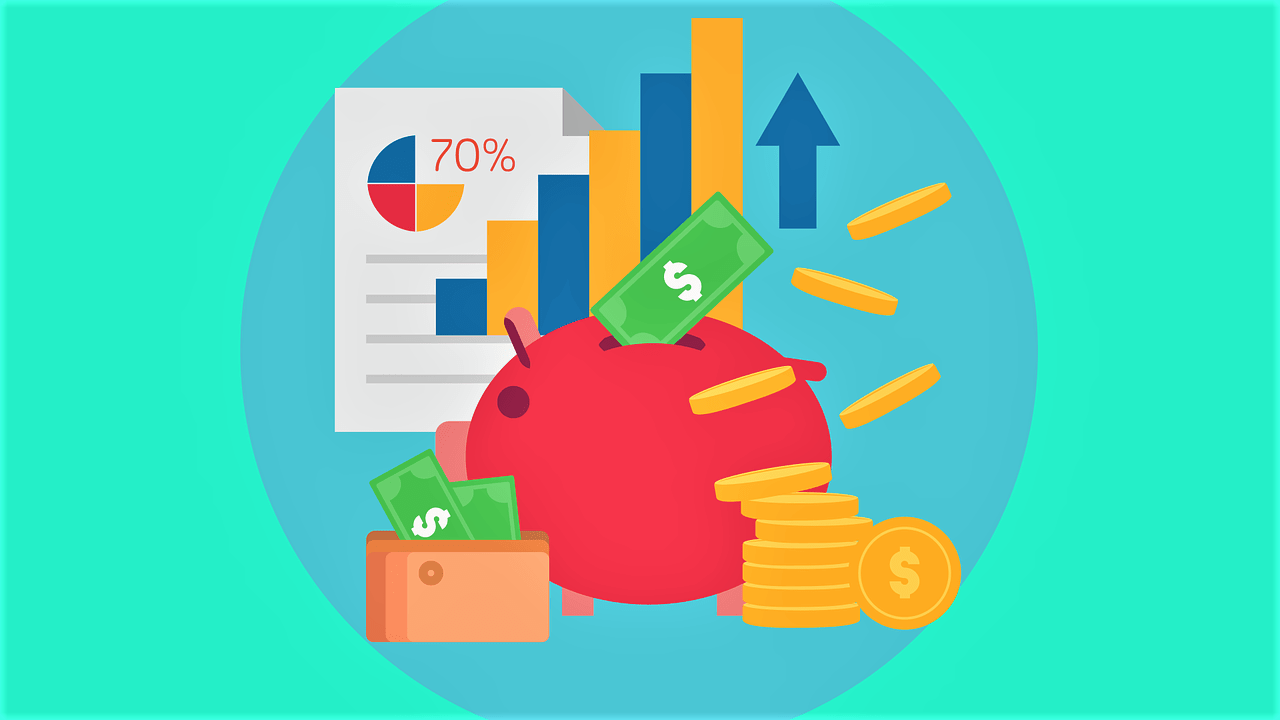30-Minute Home Business Plan
In the fast-paced digital era, speed and efficiency are essential for success. This is especially true when it comes to launching an online business. A detailed and comprehensive business plan is vital, but it doesn’t have to be a time-consuming process. You can develop a quick, practical, and actionable plan with the right approach in just 30 minutes. Get ready for an exhilarating walkthrough that will guide you through A 30-Minute Home Business Plan To Make Money Online. Whether you aim to replace your full-time income or generate additional part-time earnings, this 30-Minute Home Business Plan can help you start immediately. The great Benjamin Franklin once said “If you fail to plan, you are planning to fail” so to put it – “fail to plan, plan to fail”.

Understanding the Need for a Business Plan for home based business
A business plan is the blueprint for your entrepreneurial journey. However, opportunities can be fleeting in the digital age, and the ability to act quickly is often the key to success. A traditional business plan might take days or even weeks to formulate. However, by focusing on the essentials, you can create a streamlined version that covers all the critical components. This plan will help you identify your niche, choose a suitable business model, and set achievable goals—all within 30 minutes. The key is to remain focused and clear about your objectives, allowing you to move forward confidently and quickly.
Importance of Speed in the Digital Age
The online business landscape is constantly evolving, with new trends and opportunities emerging almost daily. In this environment, being first to market or quickly adapting to changes can be the difference between success and failure. Speed helps you take advantage of immediate opportunities and allows you to test ideas rapidly, pivot when necessary, and scale successful ventures. The faster you can move from idea to execution, the sooner you can start generating income and refining your business strategy. This 30-minute business plan is designed to help you do just that.
Overview of Online Business Opportunities
The web provides lots of different opportunities for making money from home. The possibilities are vast, from e-commerce and digital products to freelancing and affiliate marketing. The beauty of online businesses is that many can be started with minimal upfront investment, making them accessible to almost anyone. By leveraging your skills, interests, and available resources, you can tap into profitable niches and begin generating income in as little as a few weeks. This guide will help you explore these opportunities, select the best fit for your goals, and outline a plan to start earning money from home.
Why 30 Minutes is All You Need
While it might seem ambitious, 30 minutes is more than enough time to outline a basic home business plan if you focus on the essentials. This doesn’t mean skipping crucial steps but condensing the process into a series of quick, decisive actions. The goal is to get your business up and running quickly, allowing you to test and refine your strategy in real-time. With a clear niche, a target audience, and a simple financial plan, you can launch your online business swiftly and efficiently. The key is starting small, staying flexible, and scaling as you learn and grow.

Setting Your Business Foundation
1.1. Defining Your Niche
Identifying a profitable niche is the cornerstone of any successful online business. A niche is a specialised little corner of a market that you can genuinely dominate and target with tailored products or services. The first step is to align your niche with your skills, interests, and passions. For example, if you’re knowledgeable about fitness, consider niches like home workout plans, nutrition consulting, or wellness coaching. Next, analyse market demand by researching trends, competition, and potential profitability. Tools like Google Trends, Keyword Planner, and online forums are valuable sources of insights into what people are searching for and are willing to pay for. The goal is to find a niche that not only excites you but also has the potential to generate sustainable income.
1.2. Determining Your Target Audience
Once you’ve defined your niche, the next step is to determine your target audience. This involves creating a customer avatar, a detailed profile of your ideal customer. Consider factors like age, gender, location, income level, and lifestyle. More importantly, focus on understanding their pain points—what problems are they trying to solve? What are their needs and desires? Segmenting your market allows you to customise your marketing efforts for different groups, making your message more personal and practical. Messages resonate more effectively with varying groups of audiences. Knowing who you’re reaching is super essential when making stuff or selling services that meet their needs and developing marketing strategies that drive engagement and conversions.
Selecting the Right Online Business Model
2.1. Digital Products and Services
Digital products and services offer a scalable way to generate income online. Unlock the potential of e-books, online courses, and digital downloads to harness the power of creating products that can be sold repeatedly. These products offer endless opportunities for passive income and long-term success.” with minimal ongoing effort. Consulting and coaching services, on the other hand, leverage your expertise to provide personalised guidance to clients. The beauty of digital products is that they often require low initial investment, making them an attractive option for first-time entrepreneurs. To succeed, focus on creating high-quality, valuable content that addresses specific problems or needs within your niche.
2.2. E-commerce and Dropshipping
E-commerce, including dropshipping, is one of today’s most popular online business models. Setting up an online store can be super easy when you use platforms like Shopify and WooCommerce, which is incredibly straightforward. With dropshipping, you can effortlessly sell products without the need to maintain inventory, thereby minimising initial expenses. Your role is to market the products while the supplier handles storage, packaging, and shipping. To succeed in e-commerce, finding reliable suppliers, sourcing in-demand products, and creating a seamless shopping experience for your customers is crucial. Product research tools like Oberlo and AliExpress can help you identify trending items that align with your niche.
2.3. Affiliate Marketing
Looking to make some extra cash online? Affiliate marketing is a fantastic way to do that, particularly if you own a blog, website, or social media presence. It involves promoting products from other companies to earn a commission for every sale completed using your exclusive affiliate links. To do well in affiliate marketing, choosing programs that fit your niche and target audience is super important. Well-known platforms such as Amazon Associates, ClickBank, and ShareASale provide a diverse selection of products for you to endorse. To build a passive income stream, create content that naturally integrates affiliate products, such as reviews, tutorials, or resource lists.
2.4. Freelancing and Remote Work
Freelancing and remote work allow you to leverage your skills to provide services directly to clients. Popular freelancing platforms like Upwork, Fiverr, and Freelancer connect you with clients seeking specific skills, such as writing, graphic design, web development, or virtual assistance. To differentiate yourself in the crowded freelancing market, building a polished portfolio highlighting your expertise, collecting testimonials from satisfied clients, and consistently upgrading your skills to keep up with industry demands are essential. Freelancing allows you to work from anywhere and grow your business by raising your rates or expanding your client base.

Creating a Quick Financial Plan
3.1. Estimating Startup Costs
One of the advantages of starting an online business is the relatively low startup cost compared to traditional brick-and-mortar businesses. However, estimating these costs upfront is still necessary to avoid any surprises. Start by listing essential tools and resources needed to launch your business. These may include domain registration, website hosting, software subscriptions, and marketing expenses. For example, setting up a basic e-commerce site on Shopify might cost around $29 monthly, plus additional fees for premium apps or themes. Additionally, budget for marketing and operational costs, such as social media ads or email marketing software. Keeping your expenses in check from the beginning will help you reach profitability faster.
3.2. Setting Revenue Goals
When setting revenue goals, it’s important to distinguish between short-term and long-term objectives. Short-term goals might focus on covering your initial expenses and generating your first sales within a month. Long-term goals include scaling your business to achieve a certain monthly income or expanding your product or service offerings.
Establishing key performance indicators (KPIs) such as conversion rates, customer acquisition costs, and average order value will help you analyse and track your progress to make data-driven decisions. Regularly analysing these metrics enables you to refine your strategies, helping you remain on track to achieve your financial goals.
3.3. Planning for Profitability
Profitability should be at the forefront of your business planning. Conduct a thorough break-even analysis to determine how much product and service you need to sell to cover your running costs and start making a profit. For example, if your monthly costs are £500 and your average profit per sale is £50, you would need 10 monthly sales to break even. From there, you can set realistic goals for scaling your business by increasing your prices, improving your sales funnel, or expanding your product line. Remember, profitability isn’t just about revenue; it’s also about managing your costs effectively and continuously seeking ways to improve your margins.
What’s The Best Blogging Software To Launch Your Online Business
Building Your Online Presence
4.1. Developing a Simple Website or Landing Page
Your website is often the first point of contact between you and potential customers, so making a solid first impression is essential. Start with a simple, professional-looking website or landing page that clearly communicates your value proposition. A captivating headline, a summary of your products and services, customer endorsements, and a precise call to action are vital components. Platforms like WordPress, Shopify, and Wix offer user-friendly templates that make it easy to get started, even without gaining coding experience. You aim to create an enticing website with a well-defined layout to maximise conversions.
4.2. Leveraging Social Media
Social media is one of the most powerful tools online for building brand awareness and driving traffic to your website. Start by selecting the most popular platforms that your target audience frequently uses, such as Instagram, Facebook, Twitter, or LinkedIn. Tailor your content to the medium, as each platform has unique strengths. For example, Instagram is ideal for visually-driven content, while LinkedIn is better suited for B2B marketing. Consistency is vital—post regularly and engage with your followers to build a loyal community. Want to supercharge your social media game? Hootsuite and Buffer are fantastic tools that make scheduling posts and tracking performance metrics a breeze!
4.3. Growing Your Email List
UtiliseUtilise the power of email marketing to cultivate leads and boost sales like never before! Start by creating a lead magnet—something valuable you can offer the audience in exchange for their email address, such as a free e-book, checklist, or discount code. Once you have a subscriber list, use email marketing software like Mailchimp or ConvertKit to send targeted campaigns that keep your audience engaged. Segment your list based on customer behaviour, interests, or purchase history to personalise your messages and improve conversion rates. The aim is to establish a connection with your audience by offering value and remaining memorable.

Quick Marketing Strategies for Immediate Results
5.1. Content Marketing
Content marketing involves creating valuable, relevant content that attracts and engages your target audience. This can include blog posts, videos, infographics, and podcasts. Understand which subjects are most meaningful to your audience, and then create a content calendar to organise your efforts. If you want to get more people to visit your website, you should concentrate on improving your search engine ranking (SEO) to make your content rank higher in search results. Tools like Ahrefs, SEMrush, and Yoast can help you improve your content for the keywords your audience is looking for. Content marketing takes time, but if done right, it can build your authority and bring steady traffic and sales.
5.2. Paid Advertising
If you want faster results, paid advertising can quickly increase traffic and sales. When using Google Ads and Facebook Ads, you can reach specific audience targets based on their demographics, interests, and behaviours, guaranteeing that your advertisements reach the appropriate audience.
Begin with a small budget to A/B test different ads and targeting options, then expand your campaigns based on what works well. It’s essential to track your return on investment (ROI) to ensure your ads are profitable. Tools like Google Analytics and Facebook’s Ads Manager can help you track performance and make smart decisions.
5.3. Networking and Partnerships
Building relationships with influencers, bloggers, and related businesses can significantly increase your reach. Begin by looking for partners with the same target audience as you but aren’t direct competitors. Contact them with a collaboration idea that benefits both sides, like guest blogging, joint webinars, or co-branded promotions. Influencer marketing can also be very effective—work with influencers with a strong following in your niche to promote your products or services. Networking takes time, but your connections can lead to valuable partnerships, more visibility, and new growth opportunities.
Streamlining Operations
6.1. Automating Repetitive Tasks
Automation tools like Zapier, IFTTT, and HubSpot can help you automate recurring tasks like sending follow-up emails, managing social media posts, and updating your CRM. By setting up automated workflows, you can free up time to focus on critical business tasks that drive growth. Setting up automated workflows allows you to focus on more essential tasks that drive growth. Automation also reduces the chance of mistakes and keeps your operations running smoothly, even when you’re not directly managing them. The key is identifying time-consuming but necessary tasks and finding tools to handle them automatically.
6.2. Outsourcing Non-Core Activities
Outsourcing lets you concentrate on your fundamental business activities while assigning tasks that others can perform more effectively. Commonly outsourced tasks include graphic design, content creation, customer service, and bookkeeping. Platforms like Upwork, Fiverr, and Toptal connect you with freelancers with the needed skills. When outsourcing, it’s essential to clearly define the scope of work, set expectations, and maintain open communication to ensure that the work meets your standards. Outsourcing non-core activities frees up your time to focus on growing your online business and improving profitability.
6.3. Time Management Tips
Managing your time effectively is essential for the success of your online business. Start by prioritising your tasks based on their impact on your business goals. Use time-tracking tools like Toggl, RescueTime, or Trello to keep track of your time usage and pinpoint areas where you can enhance effectiveness. Make sure to schedule specific time blocks for focused and uninterrupted work on important tasks.—tasks that require intense focus and creativity—and minimise distractions during these periods. Additionally, consider implementing productivity techniques like the Pomodoro Technique or the Eisenhower Matrix to manage your time more effectively. The goal is to maximise your productivity and ensure you spend time on activities that drive results.

Monitoring and Adapting Your Home Business Plan
7.1. Tracking Performance Metrics
To ensure your business is on the right track, monitoring key performance metrics is essential. Tools like Google Analytics, Shopify Analytics, and social media insights provide valuable traffic, conversions, and engagement data. Track metrics such as website visitors, bounce rates, conversion rates, and customer lifetime value are important metrics used to measure the total revenue a business can anticipate from a single customer throughout their relationship. Analysing this information enables you to pinpoint successful strategies, areas for enhancement, and the most effective allocation of resources. Regularly reviewing your metrics helps you make informed decisions and keep your business on a growth trajectory.
7.2. Adapting to Market Changes
Staying knowledgeable about industry trends is essential for long-term success in the constantly evolving online business environment. Subscribe to industry newsletters, follow thought leaders on social media, and join relevant online communities to stay updated on the latest developments. Maintaining flexibility in your business strategy enables you to adapt when needed and capitalise on emerging opportunities. Whether adopting new technologies, adjusting your marketing tactics, or expanding your product offerings, being proactive in adapting to market changes ensures that your business remains competitive and continues to grow.
Legal and Compliance Considerations
8.1. Registering Your Business
Registering your business is important in legitimising your operations and protecting your personal assets. When starting a business, one of the initial decisions is selecting a business structure. Options include sole proprietorship, partnership, LLC, or corporation. Each structure has different implications for taxes, liability, and operational flexibility. Remember to seek guidance from a legal expert to determine the best option for your situation. Additionally, make sure to understand and comply with local regulations, such as obtaining necessary permits and licenses. Proper registration sets a solid foundation for your business and helps you avoid legal complications down the road.
8.2. Intellectual Property Protection
Protecting your intellectual property (IP) is essential to safeguarding your brand and products. It is crucial to consider acquiring trademark protection for your business name, logo, and any distinctive product names. This can help prevent others from using them without your permission. Copyright protection is essential for original content such as blog posts, e-books, and software. Online businesses must also be vigilant about privacy and data security, especially when handling customer information. Make sure to establish strong data protection measures and be transparent about how you collect and utilise customer data. This approach can help you avoid legal troubles and foster trust with your customer base.
8.3. Tax Obligations
Understanding your tax obligations is crucial for any business owner. Depending on your business structure and location, you may be required to pay income, self-employment, sales, and other state or local taxes. Maintaining precise financial records and allocating taxes regularly is vital to prevent unexpected issues during tax season. Consider using accounting software like QuickBooks or Xero to manage your finances and consult a tax professional to ensure compliance. Additionally, familiarise yourself with potential deductions and write-offs, such as home office expenses, that can reduce your taxable income.
Related articles:
Blogging How To Use A Blog To Benefit Your Online Business
Whats The Best Blogging Software To Launch Your Online Business
Boost Your Business With Pinterest Marketing
Blogging: How To Start An Awsome Blog And Make Money
How To Create A Super Money Making Machine Online
Conclusion
In just 30 minutes, you can create a comprehensive home business plan to establish the foundation for a successful venture. This plan outlines the essential steps needed to earn money from home, including defining your niche, selecting a suitable business model, and building your online presence. While this plan provides a quick start, success hinges on maintaining consistent effort and adapting to change. The online business world is constantly evolving, and those who are persistent and willing to learn and grow will thrive. Take immediate action, stay focused on your goals, and remember that even a small start can lead to significant success.
FAQs
How Much Money Can I Realistically Make With This Plan?
The amount of money you can make with this plan depends on various factors, including your chosen business model, niche, and the effort you put into it. Some online businesses generate income within the first month, while others may take longer to gain traction. However, with consistent effort and strategic planning, building a full-time income over time is possible.
What Are the Common Pitfalls to Avoid?
Common pitfalls include:
- Need to define a clear niche.
- Neglecting to understand your target audience.
- Underestimating startup costs.
- Not tracking key performance metrics.
Following the steps outlined in this plan will increase your chances of success.
How Can I Scale My Business Over Time?
To scale your business, focus on automating processes, outsourcing non-core activities, and continuously analysing your performance metrics. As your business grows, reinvest profits into marketing, product development, and expanding your offerings to reach a larger audience.
Is It Necessary to Have Prior Experience?
No, prior experience is not necessary. Many successful online entrepreneurs started with little to no experience. The key is being willing to learn, adapt, and seek resources to help you grow your business.
What Tools and Resources Are Essential to Get Started?
Essential tools include a website or landing page builder (such as WordPress or Shopify). Remember to use email marketing software, such as Mailchimp, and social media management tools (such as Buffer or Hootsuite) for your marketing efforts. Additionally, consider using analytics tools like Google Analytics to track your performance.
How can I maintain motivation and prevent burnout?
Staying motivated requires setting realistic goals, celebrating small wins, and maintaining a healthy work-life balance. Avoid burnout by delegating tasks, taking regular breaks, and focusing on the aspects of your business that you enjoy most. It’s also important to surround yourself with a supportive community of fellow entrepreneurs to stay inspired and encouraged.

